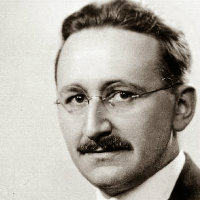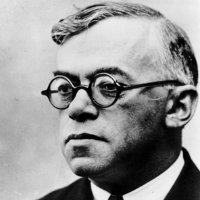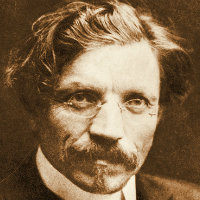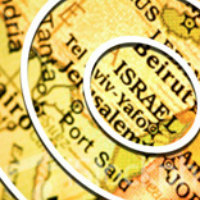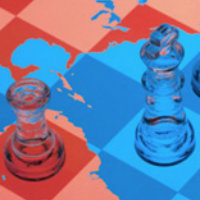Browse by topic: Economics & Public Policy, Jewish Thought & History, Social Thought, and War & Statesmanship
The Tikvah Advanced Institutes aim to provide accomplished professionals from around the globe the opportunity to study big ideas, great texts, and current issues with some of the world’s leading thinkers and practitioners. Institute Participants will receive a generous stipend that will cover living expenses in New York City or Jerusalem during their time there.
Economics & Public Policy
The Israeli Economy: A Strategy for the Future
April 28, 2014 – May 2, 2014
Instructors: Dan Senor and Ohad Reifen
 This course will examine the various dimensions of the modern Israeli economy, with a view to defining a strategy for promoting economic growth, strengthening the social fabric, and sustaining Israeli power and Jewish sovereignty. Led by prominent public intellectual, investor, and Start-Up Nation author Dan Senor and SUN Institute policy director and former Israeli budget department official Ohad Reifen, this course will explore both a series of fiscal policy ideas, as well as the sources of Israeli entrepreneurship. It will include discussions with prominent Israeli political leaders and high-tech entrepreneurs, looking back and looking ahead at how economic vitality can help sustain the Zionist project.
This course will examine the various dimensions of the modern Israeli economy, with a view to defining a strategy for promoting economic growth, strengthening the social fabric, and sustaining Israeli power and Jewish sovereignty. Led by prominent public intellectual, investor, and Start-Up Nation author Dan Senor and SUN Institute policy director and former Israeli budget department official Ohad Reifen, this course will explore both a series of fiscal policy ideas, as well as the sources of Israeli entrepreneurship. It will include discussions with prominent Israeli political leaders and high-tech entrepreneurs, looking back and looking ahead at how economic vitality can help sustain the Zionist project.
The Future of the Welfare State
November 4, 2013 – November 7, 2013
Instructors: James Capretta
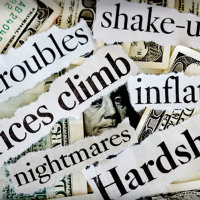 Over the past few years, the advanced democracies of the world have suffered a series of painful economic upheavals. While still quite prosperous by the standards of history, modern individuals and modern nations look to the future with anxiety and uncertainty—fueled by rising national debt burdens, aging populations, and rapid economic changes that make existing industries and jobs quickly obsolete. And while the political debates rage on about what to do—more government or less government, more competition or more regulation—very few nations have enacted policy reforms that are sensible and sustainable for the decades ahead. This course will explore the future of the modern welfare state, looking at both specific reform ideas and the deeper questions we face about who we are and how we live.
Over the past few years, the advanced democracies of the world have suffered a series of painful economic upheavals. While still quite prosperous by the standards of history, modern individuals and modern nations look to the future with anxiety and uncertainty—fueled by rising national debt burdens, aging populations, and rapid economic changes that make existing industries and jobs quickly obsolete. And while the political debates rage on about what to do—more government or less government, more competition or more regulation—very few nations have enacted policy reforms that are sensible and sustainable for the decades ahead. This course will explore the future of the modern welfare state, looking at both specific reform ideas and the deeper questions we face about who we are and how we live.
The Foundations of a Free Economy: Hayek and His Critics
October 7, 2013 – October 31, 2013
Instructors: Christopher DeMuth,Yuval Levin, Paul A. Rahe, and James Otteson
What is the proper relationship between the individual and state? Which type of social order is the most just, the most prosperous, and the most realistic given the lessons of history and truths of human nature? In no small measure, the 20th century was shaped by competing answers to these great questions, and in all likelihood so too will the century ahead. One of the central figures in these debates was the economist and social theorist F.A. Hayek, and this course will focus on the careful study of his seminal work, The Constitution of Liberty. Hayek will be understood as part of a grand conversation about economics and politics, and we will look at both his predecessors—Aristotle, Locke, Smith—and his greatest rivals—especially John Maynard Keynes.
The Spirit of Democratic Capitalism
October 7, 2013 – October 11, 2013
Instructor: Yuval Levin
Our ideas about economics are closely linked to our ideas about the good life and good society. What is wealth, and is prosperity the key to individual happiness and national well-being? How is wealth created? Is economic liberty compatible with strong communities and great nations? While the advanced, modern democracies are the most prosperous societies mankind has ever known, they also face great and persistent economic problems—and sometimes crises—that invite us to reconsider our values and our policies. This course will explore both the fundamental questions of political economy and the practical questions of modern economic life.
Jewish Thought & History
The Rabbinic Mind and Divine Law
August 3, 2014 – August 8, 2014
Instructor: Christine Hayes

What does it mean to say that a text is divine and the norms it teaches are divine? Attributing divinity to a normative system or law would appear to establish its authority and justify our fidelity to it, but how and why does it do so? What traits do we suppose a law possesses when we refer to it as divine and why do we suppose that those traits will establish its authority and justify our fidelity?
Divine Justice and Human Creativity in Jewish Literature
August 3, 2014 – August 8, 2014
Instructor: Dara Horn

In the biblical Book of Job, Job’s challenge to God—“Why do people suffer undeservedly?”—is oddly answered with God’s challenge to Job: “Why aren’t you as creative as I am?” This advanced institute will address these twinned questions—the dilemma of divine justice and the related dilemma of human limits—through the lens of both ancient and modern Jewish literature.
Is Judaism a Religion?
July 28, 2014 – August 1, 2014
Instructor: Leora Batnitzky
 From the eighteenth century onward, modern Jewish thinkers have been concerned with the question of whether or not Judaism can fit into the modern category of religion. After all, Judaism has historically been a religion of law, and hence of practice. Adherence to religious law, which is in some measure public in nature, does not seem to fit into the category of faith or belief, which by definition is individual and private. In this advanced institute we will see that the clash between the modern category of religion and Judaism as it has been traditionally practiced gives rise to many of the creative tensions in modern Jewish thought as well as to the question of whether Judaism or Jewishness are matters of religion, culture, or nationality.
From the eighteenth century onward, modern Jewish thinkers have been concerned with the question of whether or not Judaism can fit into the modern category of religion. After all, Judaism has historically been a religion of law, and hence of practice. Adherence to religious law, which is in some measure public in nature, does not seem to fit into the category of faith or belief, which by definition is individual and private. In this advanced institute we will see that the clash between the modern category of religion and Judaism as it has been traditionally practiced gives rise to many of the creative tensions in modern Jewish thought as well as to the question of whether Judaism or Jewishness are matters of religion, culture, or nationality.
Jews, Power, and the Bible
July 28, 2014 – August 1, 2014
Instructor: Micah Goodman

Dr. Goodman, Israeli author of bestsellers on the thought of Moses Maimonides and Judah Halevi and founder of Ein Prat Academy, will focus on prominent biblical texts that address the challenges of power and sovereignty. The story of the Jewish people in the 20th century is a movement from persecution and powerlessness to sovereignty and power. The story of biblical Israel also sees a powerless people gaining land and negotiating political power’s promise and peril. On the hypothesis that the history of modern Zionism mirrors biblical history, this institute seeks to illuminate Zionist thought through the biblical lens.
Reason, Revelation, and Jewish Thought
July 28, 2014 – August 1, 2014
Instructor: Moshe Halbertal

Is reason a sovereign authority in the realms of morality and metaphysics? Led by the prominent philosopher Moshe Halbertal, this institute will explore this question through Biblical, Rabbinic, and Medieval Jewish texts. Is there recognition of independent moral obligation outside of revelation within Jewish tradition? What role do value judgments have in the interpretive process and in the development of Jewish law, generally? What role does Jewish philosophy assign to reason in shaping and orienting faith? This last issue will be dealt with by reading Maimonides’ Guide, and the controversy that evolved around Maimonides positions.
The Jewish Idea of God
May 27, 2014 – June 1, 2014
Instructors: Micah Goodman and Clifford Orwin

If ideas have something like gravitational force, then the idea of God is as powerful and massive an idea as any. A change in one’s notion of the divine shapes and re-shapes the other ideas that govern our lives—ideas about power, freedom, time, meaning, and politics, just to name a few. This seminar will explore how the Jewish idea of God has affected the way we think about the human condition. Drawing on select texts from Genesis, Deuteronomy, Ecclesiastes, and Plato, we will ask big moral and political questions: Do biblical ideas promote a restless, active politics aimed at bringing the divine plan to fruition in history, or a moderate and humble political philosophy that understands the limits of human agency? What is the relationship between God, man, and nature? How does the idea of the Messiah alter the fundamental tenets of Jewish theology? Should the messianic age be understood as an escape from a world dominated by politics or a completion and perfection of such a world?
Moments of Decision, Great Debates: Judaism in the 20th Century
November 18, 2013 – December 12, 2014
Instructors: Elliott Abrams, Michael Doran, Henry Kissinger, Allan Arkush, Ran Baratz, and Jacob J. Schacter
The history of the Jewish people in the 20th century is one of great dramas in human history—with tragedies and triumphs, ideological battles and great leaders, heroic achievements and existential failures, that together offers an education in the problems and possibilities of mankind writ large. For Jews, this history defines where we have been and who we have become; and it sets the terms for what we should do and how we should live, as a people and a nation, in the decades ahead. This course will study 20th century Jewish history by looking at a few of these key leaders, moments, and debates.
The Modern Jewish Condition: A Study in Yiddish Literature
October 28, 2013 – November 7, 2014
Instructors: Ruth Wisse
The demographic surge in European Jewry of the nineteenth and early twentieth centuries generated a parallel surge of writing in Yiddish, the vernacular of Ashkenzi Jews and their descendants. The varieties of modern Jewish life were formulated and argued out in several languages, but Yiddish was the dominant register for articulating the joys and anxieties, laughter and misery, yearnings and ruptures that attended this phase of modern Jewish life. Selected from the immense body of Yiddish writing, Harvard professor Ruth Wisse will guide us through a few of its most penetrating and provocative works by Sholem Aleichem, Isaac Bashevis Singer, Chaim Grade, and others.
The Biblical View of Human Nature: Genesis and Leon Kass
September 3, 2013 – September 25, 2013
Instructors: Meir Soloveichik, Alan Mittleman, and Eric Cohen
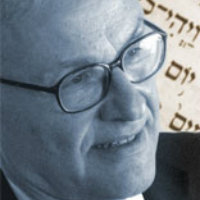 The meaning and nature of mankind is the great question for philosophers, scientists, and theologians. The Hebrew Bible, beginning with Genesis, offers a deep and complex account of who we are—from birth to death, in the family and in the community, as men and as women, called to live justly and yet so often acting in ways that distort, degrade, or even destroy the good and the holy. This course will explore the biblical view of the human condition, guided by Leon Kass’s magisterial commentary on Genesis, The Beginning of Wisdom.
The meaning and nature of mankind is the great question for philosophers, scientists, and theologians. The Hebrew Bible, beginning with Genesis, offers a deep and complex account of who we are—from birth to death, in the family and in the community, as men and as women, called to live justly and yet so often acting in ways that distort, degrade, or even destroy the good and the holy. This course will explore the biblical view of the human condition, guided by Leon Kass’s magisterial commentary on Genesis, The Beginning of Wisdom.
Social Thought
The Future of the Family
July 7, 2014 – July 18, 2014
Instructors: Eric Cohen, Gilbert Meilaender, Dara Horn, Meir Soloveichik, W. Bradford Wilcox, Jack Wertheimer, Ryan Anderson, and Jonathan Last

This seminar will examine the state of the family in modern society and the idea of the family as explored in some of the great theological, philosophical and literary texts of the Judeo-Christian West—from the Hebrew Bible, to Plato and Shakespeare, to Tolstoy and Sholem Aleichem, to Simone de Beauvoir and Joseph Soloveitchik. We will explore the big arguments about the meaning of the family, as well as the facts and trends that show us how the institution of the family is truly faring in modern times. And we will look at a range of concrete reform ideas—both cultural and political—that aim to strengthen family life for the generations ahead.
Liberalism, Conservatism, and the Jews
May 12, 2014 – May 23, 2014
Instructors: Peter Berkowitz, Yuval Levin, Meir Soloveichik, William Kristol, and William Galston
 Most Jews have strong political beliefs—about the role of government, the uses of power, the meaning of social justice, and the proper place of religion in public life. But what, if anything, do these varying beliefs have to do with Judaism? Should Jewish politics be governed by what Judaism teaches, or by what is best for the Jews? In contemporary political life, should Jews be liberals or conservatives? This seminar will explore these questions as a problem of political philosophy, drawing on both the foundational texts and ideas of modern liberalism and conservatism and the Jewish writings, classical and modern, that suggest a uniquely Jewish political persuasion.
Most Jews have strong political beliefs—about the role of government, the uses of power, the meaning of social justice, and the proper place of religion in public life. But what, if anything, do these varying beliefs have to do with Judaism? Should Jewish politics be governed by what Judaism teaches, or by what is best for the Jews? In contemporary political life, should Jews be liberals or conservatives? This seminar will explore these questions as a problem of political philosophy, drawing on both the foundational texts and ideas of modern liberalism and conservatism and the Jewish writings, classical and modern, that suggest a uniquely Jewish political persuasion.
War & Statesmanship
Zionist Statesmanship: Ben-Gurion and Begin
August 3, 2014 – August 8, 2014
Instructor: Daniel Gordis
 Can one speak meaningfully of a distinct craft of “Zionist Statesmanship”? Of what might such a craft be constructed, and on what issues would it hinge? One way of examining this set of questions is to look at the lives of David Ben-Gurion and Menachem Begin, bitter archrivals who – though each played a pivotal role in the creation of the State of Israel and eventually served as Prime Minister – had profoundly different views on the Jewish use of power, the place of Jewish text and tradition in the formation of Jewish policy, and the degrees to which Jewish statesmanship ought to be rooted in the past as opposed to focused on achieving a better future.
Can one speak meaningfully of a distinct craft of “Zionist Statesmanship”? Of what might such a craft be constructed, and on what issues would it hinge? One way of examining this set of questions is to look at the lives of David Ben-Gurion and Menachem Begin, bitter archrivals who – though each played a pivotal role in the creation of the State of Israel and eventually served as Prime Minister – had profoundly different views on the Jewish use of power, the place of Jewish text and tradition in the formation of Jewish policy, and the degrees to which Jewish statesmanship ought to be rooted in the past as opposed to focused on achieving a better future.
War and Human Nature
June 9, 2014 – June 20, 2014
Instructors: Frederick W. Kagan, Barry Strauss, Eric Edelman, Charles Hill, and Stephen Rosen

This course will explore the place of war in human life from a variety of angles: what drives men to fight; what makes war moral or immoral; how soldiers and civilians live with the specter of killing and dying; what war means for statesmen and generals, for ordinary soldiers and passionate revolutionaries, for wives and children. Drawing on a mix of classical texts, war histories, and modern studies of warfare, the seminar will explore the ways in which statesman and strategists think about the deeper human questions, and how our moral ideas about the meaning of war shape different war strategies. We will also look at what the new sciences of man—especially evolutionary biology and neuroscience—may teach us about the place of war in human life; and how new technologies—especially weapons of mass destruction and the use of drones—are shaping and re-shaping the human meaning of war, for better and perhaps, tragically, for much, much worse.
Israeli Grand Strategy
September 22, 2013 – September 25, 2013
Instructors: Uzi Arad
The Middle East is witnessing dramatic change—the rise of Islamism, the ever-shifting balance of autocracy and democracy, the production and procurement of weapons of mass destruction. All this is happening alongside major changes in the broader global landscape when it comes to energy, information technology, commerce, and values. How can Israel maintain her strategic edge in this volatile environment? Former Israeli National Security Advisor Uzi Arad will explore the past, present, and future of Israeli grand strategy, exploring the choices that Israeli statesmen will face in the years and decades ahead.
American Grand Strategy
Instructors: Eric Edelman
September 9, 2013 – September 13, 2013
America has a large and unique role in the world—politically, economically, culturally, and militarily. To some, America is the world’s sole superpower, the “indispensable nation,” the leading democracy of the current age; to others, it is the Great Satan, an irresponsible empire, or a nation in decline. Led by former U.S. Under-Secretary of Defense Eric Edelman, this course explores America’s great strategic challenges and options in the current age, drawing heavily on both his study of history and first-hand experience in the policy arena. What forces, interests, and values will shape American grand strategy in the years ahead?
The Ethics of Modern War
August 19, 2013 – September 4, 2013
Instructors: Victor Davis Hanson, Frederick W. Kagan, and Peter Feaver
War is an inescapable part of the human condition, with the course of history and the character of civilizations often shaped by the legacy of past conflicts and the possibility of future ones. This course will focus on the moral dilemmas of warfare—looking back at some of the classic thinkers and decisive moments in military history, and forward at some of the novel dilemmas posed by new weapons of war and new geopolitical clashes. Michael Walzer’s classic work Just and Unjust Wars will be our guide, probing and challenging his arguments in search of a true modern ethic of war.
